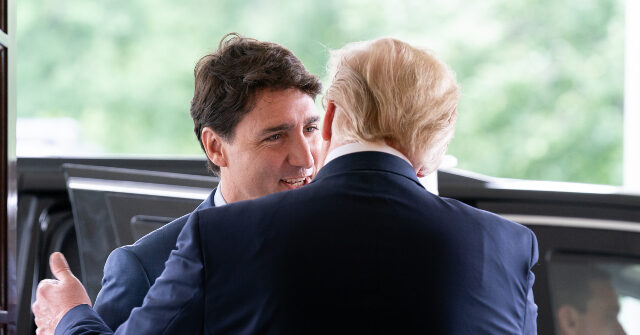Canadian Conservative Party Leader Pierre Poilievre expressed his discontent with Prime Minister Justin Trudeau’s recent engagement with President-elect Donald Trump, highlighting what he perceives as Trudeau’s “position of weakness.” Poilievre criticized Trudeau for failing to secure any substantial outcomes during Trudeau’s surprise visit to Trump’s estate, Mar-a-Lago, especially in light of Trump’s recent controversial post suggesting a 25-percent tariff on Canadian and Mexican goods. This announcement stirred concern within Canada, given that the United States is the destination for nearly 77 percent of Canadian exports. Poilievre’s remarks underscore an ongoing critique of Trudeau’s handling of relations with the U.S., framing it as symptomatic of broader governance failures ranging from border control and immigration to economic management.
While Trudeau dined with Trump and a select group of officials in Florida, his lack of an assertive response to Trump’s tariff announcement prompted unease among Canadian politicians across the spectrum. In contrast, Mexican President Claudia Sheinbaum responded swiftly with her own tariff threat, which eventually led to a call between her and Trump aimed at diffusing tensions. Reports indicated that Trudeau’s communication with Trump resulted in positive sentiments from both leaders, though critics, including Poilievre, questioned the absence of any concrete commitments from the encounter, noting that Trudeau appears to be focused on damage control rather than negotiating gains for Canada.
Trudeau labelled the meeting as “productive,” sharing an image from the dinner that reflected a cordial atmosphere. He conveyed optimism about future collaborative efforts with Trump, while Trump emphasized the need for cooperative action on issues like illegal immigration, drug trafficking, and trade. Despite the warm portrayal of their engagement, Trudeau returned without any assurances regarding the potential tariffs, raising concerns about the efficacy of Canadian diplomacy in addressing significant economic challenges. The situation highlights the precariousness of international trade relationships and the potential ramifications of unilateral decisions made by larger economies.
Trump’s intentions regarding tariffs are clear, as he previously announced that he would impose a significant duty on Canadian and Mexican imports unless both countries address associated challenges. He characterized this move as essential to combating illegal immigration and securing American workers, revealing a dominant approach to foreign relations that may place pressure on Canadian leaders. Poilievre’s critiques reflect a broader anxiety among Canadian officials regarding the ramifications of tariffs on Canada’s economy, which relies heavily on trade with the United States.
In the face of uncertainty stemming from Trudeau’s diplomatic approach, provincial leaders in Canada have begun to consider alternative strategies to safeguard their economic interests. Alberta Premier Danielle Smith criticized federal policies as hindering the province’s ability to present itself as a solution to U.S. energy needs, raising alarms about additional taxes imposed on fossil fuel industries. Similarly, British Columbia Premier David Eby emphasized his province’s intent to seek independent trading opportunities with the U.S., capitalizing on its past endeavors to expand beyond American markets as a necessary response to potential tariffs and instability.
Moreover, Ontario has taken proactive measures by launching an extensive marketing campaign aimed at positioning itself as a significant trading partner to the U.S., seeking to delineate its economic identity from that of the broader Canadian framework. The independent actions of provincial leaders reflect a growing sentiment of urgency to mitigate the risks posed by U.S. protectionism and underscore a desire for cohesive messaging and strategic alignment among Canadian provinces. The regional leaders’ initiatives highlight an evolving landscape in Canadian economic policy where local interests may increasingly seek to assert themselves amid federal uncertainties, emphasizing the complex dynamics at play in the Canada-U.S. trade relationship.

